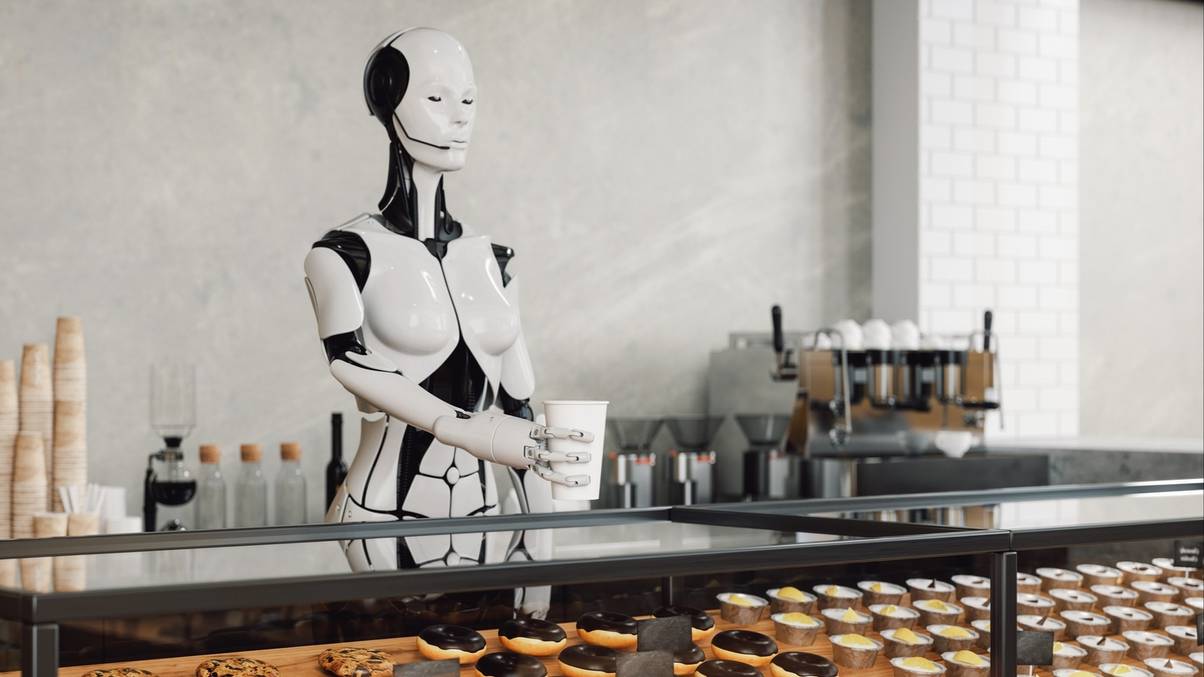44 Jobs AI Could Steal Tomorrow—Is Yours on the List?
So, folks, ever wondered if your job could soon be outsourced to a chatbot faster than you can say “AI takeover”? Well, the masterminds behind ChatGPT have dropped some spicy intel on exactly which gigs are teetering on the edge of extinction thanks to artificial intelligence. With AI’s powers growing faster than a viral meme, it’s no surprise that jitters are spreading. Sure, we love a good chatbot helping us out now and then – until, of course, it starts doling out some seriously questionable advice. But beyond the laughs and the “uh-oh” moments, AI is quietly reshaping today’s job market, and the latest OpenAI report is like an unnervingly clear crystal ball showing us who’s likely to survive and who might be outta here. Curious if your 9-to-5 is on the chopping block? Brace yourself. LEARN MORE
The creators behind ChatGPT have revealed the jobs that are most at risk of being eradicated due to AI.
More people than ever before are cautious of the increasing capabilities of artificial intelligence, and they can’t really be blamed.
While many rely on chatbots like OpenAI’s ChatGPT to help them with everyday tasks, it can give advice on things that it should really avoid, under specific prompts.
The chatbot came under fire this year for providing instructions on blowing up a sports venue, while there was a case of a teenager sharing dark, suicidal thoughts with the bot, which gave him ‘techinical specifications’ about certain methods.
There’s really no telling how much AI will develop in the coming years and decades, but the fact of the matter is it’s changing the world we live in today, and it’s already affecting the job market.

An increasing number of people are relying on AI in their everyday lives (Getty Stock Image)
OpenAI have published a paper titled ‘Measuring the performance of our models on real-world tasks’, which assesses the 44 jobs most at risk of being replaced by AI in the imminent future.
The study involved using an assessment called GDPval to use the most advanced technology against human workers across the US’ nine most profitable industries.
One industry in particular will be brutally hit with the implementation of AI, as it was found that Anthropic’s Claude Opus 4.1 system outdone humans when it came to producing results on workplace duties.
Those in the retail industry may be in trouble, with Claude Opus outperforming counter and rental clerks in 81 percent of competition, while sales managers were beaten in 79 percent of them, while shipping, receiving, and inventory clerks lost out by 76 percent.
Registered nurses avoided being defeated on the majority of tasks, with AI prevailing in just 37 percent, as OpenAI stated: “We found that today’s best frontier models are already approaching the quality of work produced by industry experts.”
Government roles such as compliance officers and social workers were outperformed on 52 percent of tasks, but surprisingly, film directors and journalists (thank god) have seemingly dodged a bullet when looking at the figures.
The information sector, which includes the likes of film directors, producers, and journalists, lost in just 39 percent of tasks.
This report said that results ultimately depended on the chatbot models being used for each job, as some were better at other jobs compared to others.

OpenAI CEO Sam Altman has admitted that AI could soon replace humans in certain roles (Kyle Grillot/Bloomberg via Getty Images)
OpenAI CEO Sam Altman said that job displacement is an issue that haunts him, claiming in an appearance on The Tucker Carlson Show: “I’m confident that a lot of current customer support that happens over a phone or computer, those people will lose their jobs, and that’ll be better done by an AI.”
Despite these claims, the company said that these results show that AI will simply ‘support people in the work they do every day’ instead of replace them, although that remains to be seen.
AI win rate on tasks vs. humans:
- Counter and rental clerks: 81%
- Sales managers: 79%
- Shipping, receiving, and inventory clerks: 76%
- Editors: 75%
- Software developers: 70%
- Private detectives and investigators: 70%
- Compliance officers: 69%
- First-line supervisors of non-retail sales workers: 69%
- Sales representatives, wholesale and manufacturing, except technical and scientific products: 68%
- General operations managers: 67%
- Medical and health services managers: 65%
- Buyers and purchasing agents: 64%
- Personal financial advisers: 64%
- Administrative services managers: 62%
- Customer service representatives: 59%
- First-line supervisors of retail sales workers: 59%
- First-line supervisors of production and operating workers: 58%
- Nurse practitioners: 56%
- Real estate brokers: 54%
- News analysts, reporters, and journalists: 53%
- Computer and information systems managers: 52%
- First-line supervisors of police and detectives: 49%
- Sales representatives, wholesale and manufacturing, technical and scientific products: 47%
- Lawyers: 46%
- Project management specialists: 42%
- Child, family, and school social workers: 42%
- Medical secretaries and administrative assistants: 42%
- Securities, commodities, and financial services sales agents: 42%
- First-line supervisors of office and administrative support workers: 41%
- Financial investment analysts: 41%
- Recreation workers: 37%
- Registered nurses: 37%
- Property, real estate, and community association managers: 34%
- Financial managers: 32%
- Producers and directors: 31%
- Audio and video technicians: 30%
- Concierges: 29%
- Order clerks: 28%
- Real estate sales agents: 27%
- Pharmacists: 26%
- Accountants and auditors: 24%
- Mechanical engineers: 23%
- Industrial engineers: 17%
- Film and video editors: 17%


















Post Comment